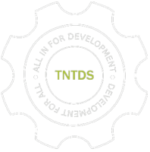Our History - Timeline
The Tamil Nadu Tribal Development Society has played a central role in the development sector for the past few decades, with a strong dedication towards the marginalized sections’ development. Over the years, society has consistently reviewed its strategy in response to emerging situations, needs, and priorities.from time to time.
The upcoming timeline info graphic will provide a concise overview of the pivotal developmental achievements so far.
I Phase: (Year 1983-1990)
1983. Tamil Nadu Tribal Development Society established. Board Members developed capacity internally and abroad. Target area identified and need assessment undertaken.
Education prioritized. Volunteers selected, trained and engaged. Literacy rates rose in 15 backward villages; Awareness on education imparted. School dropouts returned to schools.
II Phase: (1991-2000)
Vocational Skill Training
During this phase, the society provided training in computer skills and MCR tile making to women and youth. Equipped with vocational skills, they secured fair employment opportunities, improving their livelihoods and stability.
Community Health
The society trained Community Health Volunteers(CHVs) who played a crucial role in maintaining basic health standards for underserved 15, 000 Indigenous and Dalit populations.
Adolescents Sexual and Reproductive Health program through trained Youth Advocates imparted necessary life skills to Indigenous adolescents in 5 villages.
III Phase (2001-2010)
Street Children Rehabilitation
The society established a transit home for runaway children, providing food, shelter, healthcare, and counseling. Many children were reunited with their families, and others were referred to appropriate homes. Accelerated Education programs were also initiated.
Tsunami Relief and Rehabilitation
In the aftermath of the 2004 South Asian Tsunami, the society undertook relief and rehabilitation efforts, particularly focusing on women and children. It provided Food, primary health care, counseling and disaster preparedness training to Tsunami victims.
The relief and rehabilitation program was visited by a team consisting Humanitarian agencies who participated the India French platform. Notable of them are Coordination SUD, URD, Compass, and Center for Science and Environment.
Water and Sanitation and Hygiene (WASH)
The society successfully enabled 6 marginalized communities to access safe drinking water through bore wells with hand pumps. Alongside WASH campaign raised awareness among the public.
IV Phase: (Year 2011-2020)
WASH Initiatives
During this period, the society continued WASH campaign and constructed household toilets and rainwater harvesting systems. It also constructed a waterless toilet in a school without toilet facilities.
Women SHG Strengthening and Microfinance
The society capacitated women’s Self-Help Groups (SHGs) to function democratically and coordinated them into a network. These SHGs consisting 1, 3200 were linked to banks, enabling members to access loans for small-scale activities.
V Phase: (2021 - Present)
From 2021 onwards, the society remains dedicated to various initiatives, including promoting organic agriculture, Farmer Producer Organizations (FPOs), raising health awareness, supporting SHGs, and addressing climate-related challenges.
It focuses on climate action includes building a Green Hope Movement for Children and Youth, with activities such as awareness campaigns, community clean-ups, and tree plantation.
Conclusion
As we come to the end of this NGO history timeline, we are reminded of the incredible journey we’ve undertaken over the years. Throughout this timeline, we’ve witnessed the evolution of our mission, the growth of our impact, and the resilience in the face of challenges.
